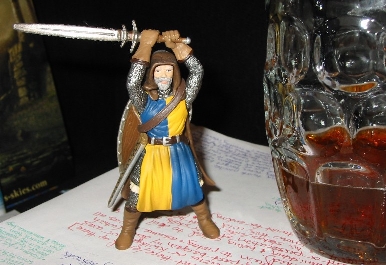One of my music buddies years ago coined a neat term: “demo love.”
Sometimes the first version of a song you ever hear is not the original but some other band’s cover of it. Then later you hear the original version, by the original artist. But the cover version you heard first is so indelibly impressed on your mind that the original never sounds right. Your lasting impression of that song is dominated by the other version that you heard first.
Sometimes for the better–Hendrix’s version of “All Along the Watchtower” takes Dylan’s original to a new level. But sometimes for the worse (I pity all the kids in the late 80s who the first version of “Purple Haze” they ever heard was Winger’s cover…).
My buddy has a home studio and records lots of bands. He noticed this phenomenon with demo recordings. Bands usually record a demo version of their songs first–to get the ideas on tape; to help plan their approach for when they record a real, fancy or polished version. That demo was the first version of those songs you ever heard, and sometimes it would stick so indelibly in your mind that you had “demo love”–you always liked the demo better, even compared to the later fancy polished recording.
I think there’s another reason that demo love happens, in both music and fiction. First drafts often have some subconscious spark; some bit of raw inspiration or “quan” (cf. Jerry McGuire). There’s something very cool in there that’s more than the sum of the parts.
And sometimes when writers aren’t careful on a rewrite, that spark gets lost.
I see this happen in stories rewritten for BCS. One cause I think is writers rushing the rewrite. They spent months writing the story; then they spend thirty minutes on the rewrite. The new insertions don’t have the same spark as the rest of the story–maybe they don’t match the story’s voice, or they’re inconsistent with the tone of the character, or any number of things.
Sometimes I see writers adding a lot of new stuff. Bigger or longer changes to me means more risk of spoiling the original voice.
Another cause I think is writers not making a dedicated effort to match the voice that the previous draft has. We writers often get into an odd “head space” when writing a story; a mental state colored not only by the character and the story but also by who we are on that day; what we’re thinking about or dealing with. I think it takes a deliberate effort to recapture that same “head space” when you’re making insertions into that story.
This is why I pretty much beg the writers I give rewrite requests to to take their time with the rewrite. All the time they want. However much time the story needs. And to make their changes or insertions as small as they can–the smallest possible tweak that will fix whatever the problem is. And to do all they can to match the same voice that the original had.
So for rewrites, demo love can be a good thing. To help you preserve whatever innate spark the demo had, that you (or the editor!) fell in love with.






